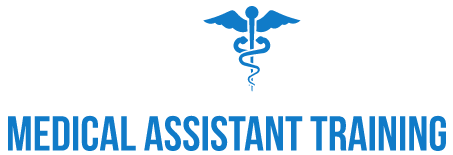Reproduction and Endocrinology Processes
At present, the medical assisting career is expanding in a fast pace. This is to provide accommodation for the significant rise in the number of patients who are visiting the health care service centers every day. So as to develop into an essential aspect of a health care service center’s clinical employee and as an effective medical assistant, one should successfully complete the appropriate education and training that are considered to be the two essential factors. Students in medical assisting training program study about general health and medicine, for instance, biology, anatomy, various medical terms and general physiology.
In addition, students who attend a medical assistance training program will also gain knowledge about the essential human body system and its functioning process. This is to help them understand about the human bodily processes that are vital for treating their patients. In addition to various human biological systems, medical assistant students will learn about the human skeletal system, human endocrine system and human reproductive systems in conjunction with other biological topics such as, geriatrics and pediatrics.
Endocrinology
Endocrinology is a subdivision in Medical and Biology fields. It deals with the endocrine arrangement, various diseases that are caused in the endocrine system, vital secretions (hormones) produced by them, the amalgamation of developmental procedures, production, expansion, segregation and the harmonization of the physical processes such as, respiration, excretion, reproduction, sensory concept, movements, etc.
The endocrine system is an arrangement of different glands. Each glands will exude different kinds of hormones into the blood stream directly rather than secreting in various ducts. The endocrine system incorporates quite a lot of glands in diverse parts of the human body. Basically, endocrinology deals with the learning of the food storage, bio-synthesis, bio-chemical, chemistry and physiological roles of various hormones along with various cells that are present in the endocrine tissues and glands that produce them.
On the whole, the endocrinology, reproductive and skeletal systems along with geriatrics and pediatrics courses will cover the general human physiology and anatomy. Also, this includes a general idea on the learning of human biology and an assortment of human body systems and structures.
In these diverse biology courses, medical assistant students learn about:
- Human physiology, anatomy and the specific roles of the human endocrine, reproductive and skeletal systems.
- Various medical terms and expressions that are connected with the reproductive, endocrine and human skeletal systems.
- Infant development and growth processes.
- Essential biological knowledge that are required in order to support in a doctor’s office.
- Right procedures to measure the body weight and height of the children.
- Vital symptoms and signs of looming child mistreatment (abuse) or disregard.
- Entire human development processess across the human natural life.
- Usual and unusual transformation in bodily processes that are vital element of the human aging course of action.
- Vital responsibilities of a medical assistant that are related to aged people.
As a final point, special area of expertise are also educated in a medical assisting programs. For instance, diagnostic or analytical procedures, laboratory investigation processes, etc that are specifically valuable for those medical assistants who wish to support and help the medical practitioners and patients.
While learning about the endocrinology, reproductive and skeletal systems along with geriatrics and pediatrics courses, medical assistance students will expend their time in a conventional classroom mileu in addition to the institution’s computer and medical labs.
